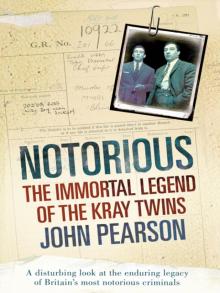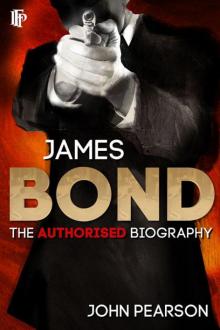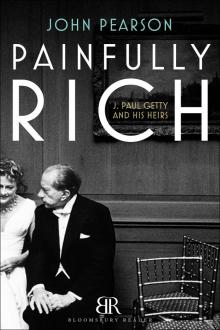- Home
- John Pearson
The Bellamy Saga Page 5
The Bellamy Saga Read online
Page 5
Guy built the tower, organised the lands, and laid the foundations which almost every subsequent head of the family would add to or adorn: Henry Southwold, fourth Earl and friend of Richard Cromwell, who dropped the preliminary “de” and subsequent “e” from the name and used the stones and wealth of the nearby monastery to construct the wonderful great hall after the Reformation; the Elizabethan Hugo Southwold who sailed with Raleigh and built the orangery, and the mid-eighteenth-century Spencer Southwold who was bitten by the building bug and built and built and built—the Palladian west wing, the folly on the hill, the stable block which is a sort of palace in itself. Nothing but death could still Earl Spencer’s plan-encumbered fingers, and the great house owes more to his constructional zeal and recklessness than to anything else.
Marjorie had lived with these ancestors of hers since childhood; their personalities and legends had been so intertwined in the fabric of the great building that she often felt as if she knew them better than the living members of her family. She certainly preferred them. They didn’t shout at her or let her down or try to teach her manners, and now that she was home again and in disgrace it was to them she turned for consolation. There was no one else. Her brother, Hugo, was away in Scotland, reluctantly pursuing the Highland sports that were expected of him—“I would rather catch no salmon than shoot no grouse if it comes to it,” he said to Marjorie before he left—whilst her father, the eleventh Earl, was in the final throes of attempting once again to win the Derby. This naturally took precedence over everything and was a perfect alibi for being far from Southwold when his wife returned. She, having done her best to sever diplomatic relations between France and Britain—and ruin Richard in the process— had now retired to bed. She complained of nerves, of headaches, of the vapours. Every morning faithful Doctor Cowley would drive over from the village in his trap to assess her symptoms and prescribe fresh drops, a change of tablets or a different medicine. For Lady Southwold was a restless patient.
Marjorie steered clear of her. She knew her all too well in her current mood and realised that everything would be blamed on her.
“I’ve done my best for you, ungrateful creature,” Lady Southwold had shouted at her daughter as they left Paris. By mid-Channel, when her ladyship began to feel unwell, she had inevitably blamed Marjorie. By the time they reached Southwold she was moaning and telling Marjorie that since she’d thrown away the one chance she had of making a successful marriage, she would now have to face an old maid’s future.
None of this worried Marjorie. She was in love, so painfully and totally in love that nothing else mattered—certainly not her mother— and she felt nothing but gratitude when she was told that the marriage stakes were over. If she could not have Richard, and it seemed clear that she could not, she would not have anyone.
It may seem strange that so strong-willed and determined a young woman should have accepted so calmly the fact that marriage to the man she loved was quite impossible. But Marjorie was an aristocrat, and although she suffered from her mother and often fought with her, she had never rejected any of the principles by which she lived. Southwolds were not like ordinary people. Southwolds had standards to preserve. Southwolds had clear-cut duties to their family and their position in Society. And, above all, Southwolds did not complain if things went wrong. (This last unwritten rule, though often broken by Lady Southwold, was nevertheless endlessly enunciated by her.)
And so Marjorie kept her sadness, like her love for Richard, firmly to herself. Had she heard of her mother’s action and his dismissal from the Service, she might conceively have written to him, or tried to do something to correct the wrong, but even this is doubtful. Marjorie was a realist, and as a realist she knew that when one broke the rules one paid the penalty.
But nobody told her what had happened, and when May came to Southwold she was still sadly picturing Richard’s existence in Paris and feeling faintly jealous, miserably resigned.
She had her pony, Castlereagh, to ride, but he was old (Marjorie had been given him for her sixth birthday) and blind in one eye and not exactly cheerful company. Nor was her Irish elk hound, Cromwell. Several years ago, he had lost a leg in one of the man traps still set—illegally but quite effectively—on the estate. It had been Lord Southwold’s idea to have the old dog fitted with a wooden leg. Augustus Talbot-Cary, his lordship’s battling great-uncle, had lost a leg with Wellington at Waterloo.
“If Uncle Gus could make do with a wooden leg I don’t see why Cromwell shouldn’t,” he had said consolingly to Marjorie. And make do Cromwell had, although complainingly and with a look of terrible reproach on his great shaggy face.
During the days of early May this melancholy trio would amble through the park. The deer would flip their small white tails and huddle by the beech trees at their coming. The Wiltshire skies had never been so blue, and in the distance Southwold with its towers and turrets looked like some shimmering enchanted palace. Love-sick Marjorie, one-eyed Castlereagh, and three-legged Cromwell went on their silent way, keeping their sorrows to themselves.
Ten-thirty in the morning. Pigeons were cooing in the trees of Grosvenor Square. An old man with a bell was shouting his wares and a hansom cab had just collided with a costermonger’s cart. The interchange between the drivers floated through the third-floor win dows of the big house opposite, summoning John Henry Talbot-Cary eleventh Earl of Southwold, to the unwelcome presence of another day. He groaned. How odd it was that the human body never got used to getting up! How strange as well that half a lifetime of waking to headaches and hangovers never allowed one to adapt to them. Last night he had been with—who had he been with? He groaned again. The Duke of Devonshire, as far as he recalled. Louisa Manchester had been there too. She always was these days. He couldn’t stand the woman. Really, she was becoming just a little blatant in the way she pursued the Duke. She had one duke already, a perfectly good one, if a little dull. Manchester was all right, a dear fellow. Why did the wretched woman want another?
“Matthews!” he shouted.
“My lord,” a voice replied. “Coming, my lord, this instant.”
“Matthews!” The door in the sparsely furnished bedroom opened: a pink and curiously optimistic face peered in.
“Tell me, Matthews, why are you such a miserable, dirty-minded, thoroughly disreputable rogue?”
“We’re made as we’re made, my lord.”
“And why do I still put up with you although you fornicate beneath my roof and continually rob me?”
“Come, my lord, there are limits.”
“Exactly, Matthews! Absolutely, Matthews! Entirely, Matthews! Limits, you mangey scoundrel you, you whoring blackguard. Limits! I’ve warned you, Matthews, but enough’s enough. You’re dismissed, Matthews, from this moment, and if my head didn’t ache so much I’d beat you too. Chastisement’s what a case like yours calls out for. Damme if I won’t give it, too!”
At this the Earl stumbled from his bed, a tall, thin, grey-haired man with hollow cheeks and a two-day stubble on his chin. Long and sensitively arched feet protruded from beneath his blue-and-white-striped nightshirt.
Matthews, who evidently knew his master’s early morning habits, prudently withdrew behind a chest of drawers, but his precautions were not necessary. The Earl clapped a hand to a dramatic forehead.
“What did they poison me with last night, Matthews?”
“Port wine, my lord. You know what Dr. Cowley says about port wine, but still you drink it. Ever the sufferer, my lord!”
Southwold groaned and sank back on his bed. But once again Matthews proved that he knew his master and his job. From outside the door he produced a tray with a long thin bottle of hock and a dark blue one of soda water.
“Hair of the dog, my lord.”
Once more the Earl groaned, but less aggressively now. And while he drank his hock and seltzer, Matthews, dismissal totally forgotten now, was energetically stropping razors and mixing a lather from a great bowl of shaving soap by th
e window.
“Lovely day, my lord. Just a bit in need of grooming aren’t we?”
The Earl lay back on the pillows, Matthews tied a towel round his neck and, humming softly, shaved him.
In fact, the bond between Lord Southwold and his “man,” as Matthews was designated, was probably the strongest in his life (apart possibly from his feelings for Malatesta, the Arab three-year-old who had won the Derby for him three years earlier). Matthews looked after him, procured for him, settled his debts for him (he kept his master’s cheque-book and managed the accounts), doctored and often cooked for him. He was intensely loyal, reasonably honest and surprisingly discreet.
He was also efficient in his own strange way, acting as a sort of private secretary to his lordship when there was business that required attention, and it was thanks to him that the name Richard Bellamy came up that morning. It was during a session of discussing bills that needed paying and correspondence that could hardly wait much longer for an answer. The two men sat at the enormous table in the dining room, with the remainder of the room covered in dust sheets. The indispensable Matthews had made two piles of the previous month’s correspondence. One—the larger—consisted of matters that could safely be ignored a little longer, and the other of those that Lord Southwold had to deal with. This pile consisted in the main of bills from farriers, grain merchants, and veterinary surgeons, but there were other things too that occasionally required his lordship’s close attention. It was one of these which Matthews suddenly picked out.
“And how long have you been such a close friend of Bishop Gough of Norwich, my lord? Hardly your line of country, I’d have thought. Seems to be something to do with a request for a church living. The usual thing, but this one’s interesting. He is appealing on behalf of somebody called Bellamy—father apparently in the Church before him, no suitable livings in the Norwich diocese. But this is the interesting bit, my lord: he’s writing to you because this Bellamy fellow was until recently with our embassy in Paris, where he performed some useful service to her ladyship.”
“The deuce he did!”
“The devil he didn’t!”
“It must be him—the Richard Bellamy! Matthews, I take back everything I said to you this morning. You’re not a ruffian, at any rate not much of one. You’re quite a clever fellow really, Matthews. We must most certainly do something for this diplomatic clergyman-to-be. Summon him, Matthews. We must meet him.”
Three days later Richard received a coroneted envelope. Inside he found a five-pound note “to cover fare and incidental expenses,” and an invitation to present himself to meet the Earl of Southwold at 44 Grosvenor Square at noon exactly, one week hence.
Richard’s first reaction was to ignore the letter. Bishop Gough, as absent-minded as he was well-intentioned, had told him nothing of his correspondence with the Earl. All Richard could think was that this was a further episode in the trouble there had been in Paris, and this really was too much! Hadn’t he suffered quite enough for what he had done? It was outrageous of Lord Southwold to be still pursuing him. A sense of the injustice of it all still obsessed him—and it was this that finally decided him to take Lord Southwold at his word and clear the whole thing up forever. Finally, a most aggressive Richard Bellamy set off to London, ready to beard the Earl in Grosvenor Square.
But he was in for a surprise. First there was the extraordinary character, with a red face and looking like a race-course tout, who opened Lord Southwold’s door.
“’E’s in the library,” he announced, then indicated the direction and disappeared.
Richard walked down a corridor, knocked at a door and entered. A tall man with a white face, an enormous nose and pale grey, slightly hooded eyes was sitting at a desk. He wore a pair of muddy hunting boots, a red silk dressing gown, and a white stock round his neck. He rose lethargically to his feet.
“Bellamy,” he said. “So you’re the young man I’ve been hearing all about.”
He struck Richard as remarkably good-looking in a curiously foreign way. (Southwold’s mother, the old Countess, was in fact a Russian from Kiev.) When he smiled the skin around his eyes wrinkled engagingly, and his cheekbones were unusually high.
“And what have you been hearing, sir?” Richard asked somewhat sharply.
“About your meeting with my wife and daughter whilst you were with the Embassy in Paris.”
The icy, distant tone in which these words were uttered made Richard bridle.
“Sir, I’d rather not discuss it. All that I did was try to help a young lady who appealed for my assistance. I’ve paid the penalty for my stupidity. I’d rather we left the matter there.”
“But that’s impossible, since my wife and daughter are involved. I insist on hearing just what happened.”
Something about the way Southwold spoke made Richard realise that argument was useless; so he did as he was instructed, telling the whole story, haltingly at first and then with growing confidence.
As he spoke, Lord Southwold’s manner changed as well. The haughty look soon went, the grey eyes twinkled, and when Richard hesitated for a moment in describing d’Amboise, Southwold slapped his thighs and shouted, “Go on, go on! You can’t shock me. Tell the truth!”
So Richard did—including a description of exactly how her ladyship behaved when the story broke.
At this point Southwold stopped him. “Wait just a minute, my dear fellow. This is too extraordinary. Matthews must hear it too. Matthews!” he bellowed, and the speed with which the man appeared made Richard certain he had already been listening at the door.
Matthews enjoyed the story, and soon he and his master were both laughing as Richard told about the scandal that swept Paris.
When Bellamy described the way he was dismissed, Southwold looked pensive, and when the story was finished there was silence.
“Well,” said Lord Southwold finally, “it is quite clear that our young friend has been most shabbily treated.”
“A damnable disgrace, my lord,” said Matthews loyally.
“And all because you did my daughter and my family a service for which we should be profoundly grateful.”
“Something should be done about it,” Matthews said.
“Exactly,” said the Earl,” but first I think it’s time we had a little something. Matthews, a bottle of the Krug, and there must surely be some cold beef left.”
“Beef, my lord? You’re joking.”
“No beef? In that case make it two bottles.”
“Three glasses, my lord?”
“Insolent fellow! I suppose so, then. Now, Bellamy, let’s get one thing straight. This business of the Church. I hear that you are a candidate for holy orders. Are you serious?”
“Well, sir …” said Richard doubtfully.
“You’re not. Capital. We understand each other. I can’t stand cant on matters of religion. I take it that what you’re looking for is really some sort of comfortable niche, somewhere where you can lead a life of decent comfort without too much effort.”
“Sir, I …”
“Capital, Bellamy. Capital. You’re a man after my own heart. Can’t stand people who aren’t honest with themselves.”
The Krug appeared. It was cool, sparkling, and the sight of it took Richard back to his days of happiness in Paris. He drank appreciatively. Southwold watched him closely.
“What d’you think of it?” he asked.
Something about the way he asked the question gave Richard courage to reply, “Do you want my opinion as your guest—or as a connoisseur?”
Southwold smiled. “The latter, naturally.”
“Then I would say that, judged by the very highest standards, this really is too light to take too seriously: also a little too frissonnant for my taste, and obviously we’re drinking it too soon. Ask me again about it in, say, five years’ time and the story could be more encouraging.”
A shocked silence greeted Richard’s verdict—then Southwold roared with laughter.
�
��Your hand, Bellamy, your hand! It is an honour to know you. Did you ever hear such judgement on a bottle of champagne, Matthews?”
“Never, my lord.”
“That decides it, then. Your future’s settled, Bellamy my lad.”
“Settled, my lord?”
“Yes, settled. There’s only one place for a man who has such powers of judgement. In Parliament, my boy! In Parliament!”
Until that moment Richard had never thought of politics as a career. To be quite honest, he had the usual civil servant’s professional contempt for politicians as a breed. But there was no resisting the decision of Lord Southwold, now that he’d set his mind upon this course of action. His energy and his efficiency were phenomenal, and almost overnight Richard found himself swept up in a whirlwind of activity which was to carry him, shaken but triumphant, to Westminster.
What surprised him from the start was the apparent ease and confidence with which this great magnate seemed able to dispose of seats in Parliament almost as if they were tied cottages on his estate. Surely the days when the aristocracy had such power were over? But quite clearly they were not. There was a by-election pending in the market town of Sutton, twelve miles south of Hyde Park Corner, and before the week was out Richard discovered that his lordship, who was quite a power in the district, had obtained his nomination.
Everything, it seemed, was taken care of. Matthews had booked him into Brown’s Hotel and settled such mundane matters as his clothes for the campaign (from his lordship’s private tailor), his transport (a phaeton from his lordship’s stables) and his expenses (a hundred guinea draft upon his lordship’s bank.)
And it was his lordship who took charge of his protege’s début as a politician. He dined him in the House of Lords, then introduced him, almost casually, to several of the greatest in the land. A dizzying round of social life followed, as a somewhat baffled Richard Bellamy found himself the centre of attention. But he adapted quickly. He had looks, charm, and Lord Southwold in the background. After the drawing rooms of Paris this was child’s play. A rejuvenated Richard, failure and disgrace receding rapidly, started to rediscover the mainspring of his life—ambition.

 The Bellamy Saga
The Bellamy Saga Notorious: The Immortal Legend of the Kray Twins
Notorious: The Immortal Legend of the Kray Twins Learn Me Good
Learn Me Good James Bond: The Authorised Biography
James Bond: The Authorised Biography Painfully Rich
Painfully Rich The Profession of Violence
The Profession of Violence Biggles
Biggles Blood Royal: The Story of the Spencers and the Royals
Blood Royal: The Story of the Spencers and the Royals